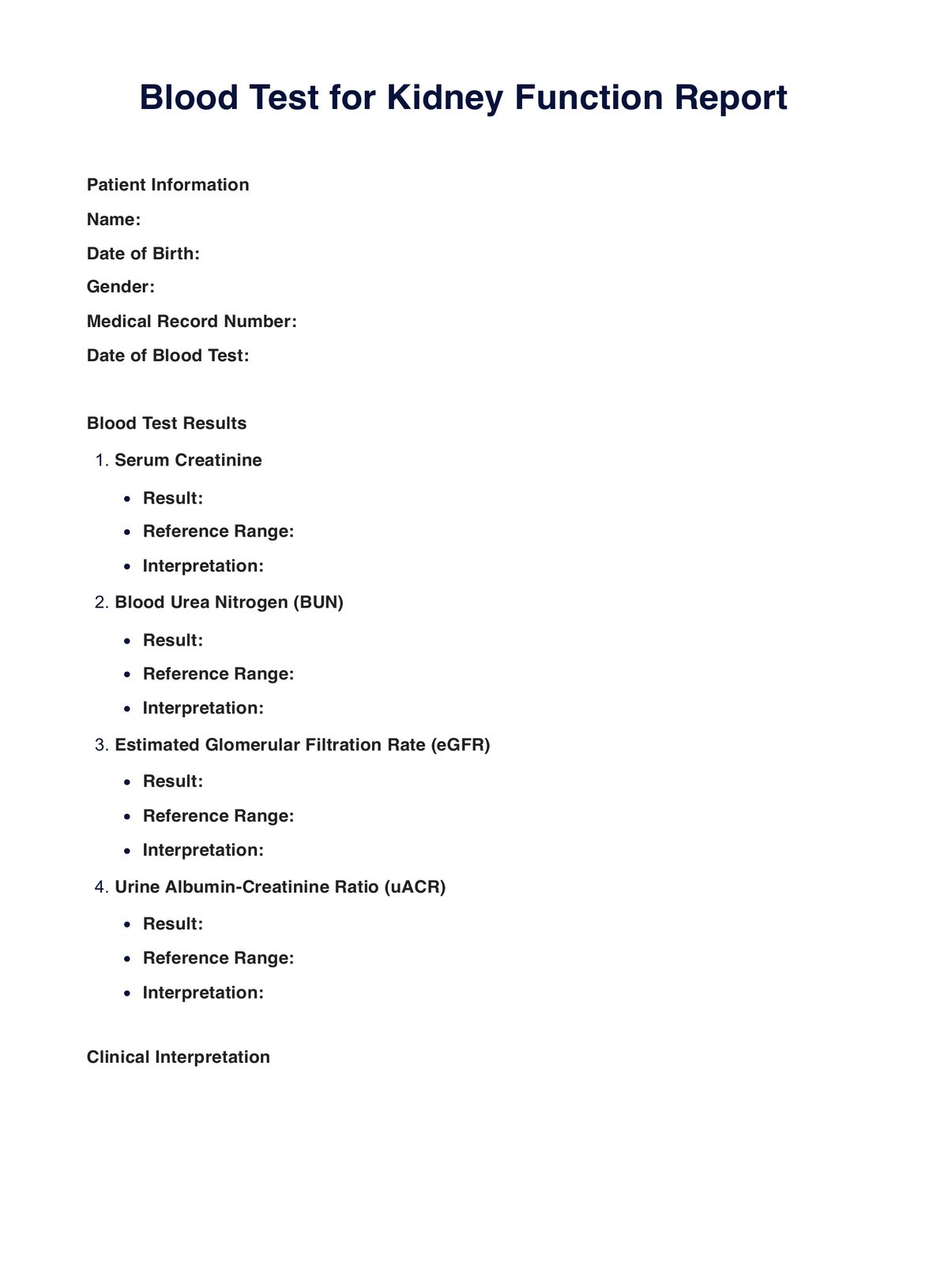Explore the standard blood tests routinely employed to evaluate kidney function, including serum creatinine, blood urea nitrogen (BUN), and estimated glomerular filtration rate (eGFR).

Blood Test for Kidney Function
Unlock optimal kidney health with our comprehensive Blood Test Guide—your go-to resource for understanding, monitoring, and maintaining kidney function.
Use Template
Blood Test for Kidney Function Template
Commonly asked questions
Understand the components of a CBC and whether it includes markers indicative of kidney function.
Learn about the normal range for serum creatinine and understand when elevated levels may indicate potential issues with kidney function.
EHR and practice management software
Get started for free
*No credit card required
Free
$0/usd
Unlimited clients
Telehealth
1GB of storage
Client portal text
Automated billing and online payments











